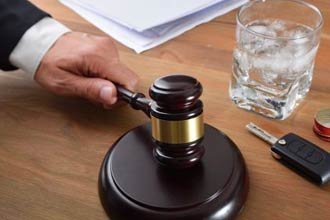
Defenses Against DUIs

Being charged with Driving Under the Influence (DUI) or Driving While Ability Impaired (DWAI) is stressful. You could face a driver’s license suspension, hefty fines, and even the possibility of jail time. But there is hope. Evidence in a DUI or DWAI case is often technical and highly complex. An experienced DUI defense lawyer can identify areas where the prosecution lacks the evidence necessary to secure a conviction, which can lead to a reduction in charges, a reduced sentence, or even dismissal of the case.
Here are five of the best defenses against DUIs.
Were You Driving?
To be convicted of a DUI, you must be in actual physical control of a vehicle. You cannot be convicted of a DUI without the element of physical control. Maybe you were asleep in the driver’s seat, but the car was not on. Or perhaps you pulled over and were using the vehicle as shelter until you were sober enough to drive.
If you were not in actual physical control of the vehicle, a DUI defense lawyer can work to eliminate this element of the crime, which can lead to reduced charges, a reduced sentence, or dismissal of the case.
Did the Police Have Probable Cause?
To place a suspect under arrest, the police must have probable cause to believe you broke the law. If the police lack probable cause, any evidence obtained after the arrest cannot be considered.
Probable cause is a relatively low threshold. The police likely have probable cause to stop you if you were speeding, weaving, driving erratically, waited too long after the light turned green, ran a red light or stop sign, or even if you had a tail light out. Nonetheless, a thorough analysis of any DUI charge should include an evaluation of whether the police officer had probable cause to believe you committed a crime.
In addition, before asking you to perform Field Sobriety Tests or submit to a Breath test, the police officer must have probable cause to believe you were under the influence of drugs or alcohol. The officer must be able to identify specific, articulable facts that caused them to believe you were under the influence. Police often cite an “odor of alcohol,” glassy or bloodshot eyes, confusion, lack of coordination, slurred speech, or lack of fine motor skills as probable cause to believe a suspect was under the influence. However, challenging the sufficiency of this evidence could lead to a successful resolution of your case. If you find yourself facing allegations related to drug possession, it’s crucial to seek guidance from a seasoned drug possession lawyer.
Were the Field Sobriety Tests Adminstered Properly?
When police officers believe a driver is under the influence of drugs or alcohol, they ask the suspect to perform Field Sobriety “Tests” designed to assess whether a driver is under the influence. Field Sobriety Tests may include:
- Standing on one foot;
- Walk and turn;
- Horizontal Gaze Nystagmus test;
- Counting or reciting the alphabet backward;
- Answering a simple math problem; or
- Touching your finger to your nose.
To be admissible in court, these tests must be conducted according to guidelines set forth by the National Highway Transportation and Safety Administration (NHTSA). If the police officer did not follow these guidelines when conducting the tests, the results are unreliable and should not be considered as evidence.
Are the Results of the Blood Alcohol Test Accurate?
Colorado currently uses the Intoxylizer 9000 to sample a suspect’s breath and determine their Blood Alcohol Content (BAC). Testing a suspect’s BAC is a scientific and highly technical aspect of a DUI prosecution. Before the test results can be admitted in court, the Intoxylizer 9000 must be properly calibrated, the police officer must have been trained in how to use it, and the test must have been properly administered. If the testing protocols are not followed precisely, the test results are unreliable and should not be admitted in court.
Also, remember that the Intoxylizer 9000 only tests for the presence of alcohol. If you are suspected of driving while under the influence of marijuana or another drug, the results of a breath test cannot be used.
Constitutional DUI Defense
Depending on the circumstances of your case, you might have other defenses available. For example, if you asked to speak to a DUI defense attorney and the police did not let you or if the police failed to read you your Miranda rights, you might be able to challenge the circumstances of your arrest and the admissibility of evidence the prosecutor will use to try to convict you of DUI or DWAI.
Contact the Law Office of Kevin Cahill Today
Colorado DUI and DWAI law is surprisingly complicated and highly technical. If you have been charged with a DUI, working with an experienced DUI defense attorney will improve your chances of a successful outcome.
Denver Criminal Defense Attorney Kevin Cahill has the knowledge and experience to mount a vigorous DUI defense and DWAI charges in Colorado. He will use available evidence to show that evidence was improperly obtained, there was a problem with the testing machine, or the officer made an unlawful stop.
To learn more, contact the Law Office of Kevin Cahill today by calling (720) 445-9887 to schedule your free and confidential consultation.

